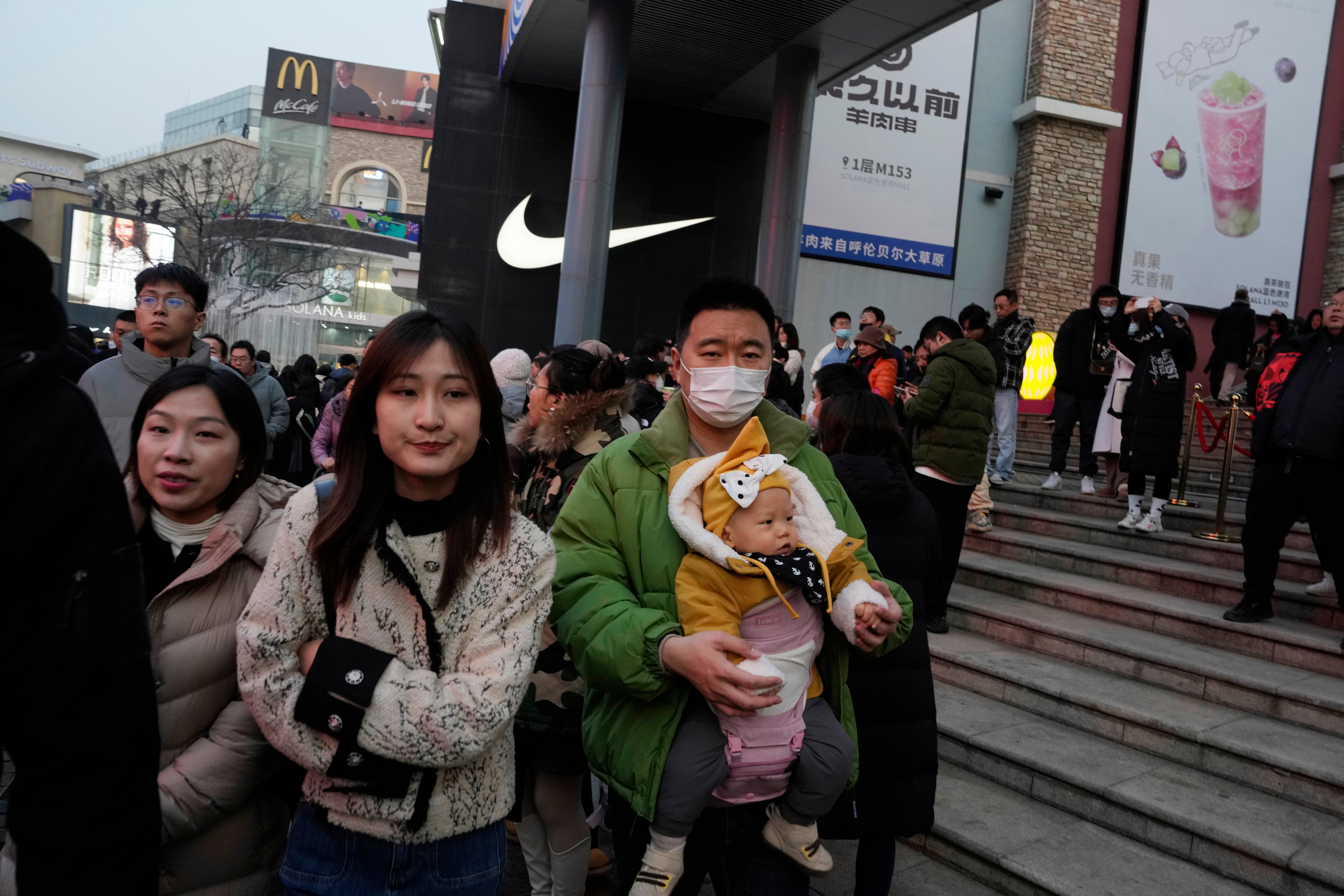China is worried its people ‘fear having children’ and is launching massive survey to find out why
China was world’s most populous country until India jumped ahead last year
Your support helps us to tell the story
From reproductive rights to climate change to Big Tech, The Independent is on the ground when the story is developing. Whether it's investigating the financials of Elon Musk's pro-Trump PAC or producing our latest documentary, 'The A Word', which shines a light on the American women fighting for reproductive rights, we know how important it is to parse out the facts from the messaging.
At such a critical moment in US history, we need reporters on the ground. Your donation allows us to keep sending journalists to speak to both sides of the story.
The Independent is trusted by Americans across the entire political spectrum. And unlike many other quality news outlets, we choose not to lock Americans out of our reporting and analysis with paywalls. We believe quality journalism should be available to everyone, paid for by those who can afford it.
Your support makes all the difference.China is conducting a survey to understand the public’s “fear around having children” as it grapples with a birthrate that continues to decline despite repeated efforts to encourage people to have more babies.
The study the root causes behind this flagging birthrate will cover 30,000 respondents across 1,500 communities in 150 counties, according to the China Population and Development Research Centre of the National Health Commission.
China’s birthrate has been declining since the late 1980s after it introduced a strict one child policy to control the rapidly growing population. Total population fell for the second straight year in 2023.
It was still the world’s most populous country until India took the lead in April 2023.
The survey aims to analyse people’s “reluctance and fear around having children" and provide data for public agencies to enhance fertility support policies, Global Times reported on Thursday.
This is the first such exercise since the countrywide family and fertility survey in 2021.
It comes after the National Bureau of Statistics said it will conduct a nationwide sample survey from 10 October to 30 November to monitor population changes.

Chinese health officials said in September they would focus on advocating marriage and childbirth at "appropriate ages" and called for shared parenting responsibilities to guide young people towards "positive perspectives on marriage, childbirth and family".
To arrest the decline in population, China scrapped the one child policy in 2015 and laid out financial incentives, such as tax breaks, for couples to have at least two children. In October 2022, president Xi Jinping declared that boosting the birthrate was a national priority.
Mr Xi told the Communist Party National Congress, held every five years, that his government would “pursue a proactive national strategy” in response to the country’s ageing population.
Any measures taken so far don’t appear to have had a sustained impact, however, with people citing the rising cost of living as one of the reasons for delaying having children or dismissing the idea entirely.
Chinese policymakers are reviewing plans to delay the retirement age for state employees with urgency growing over a shrinking workforce. The National People’s Congress in September discussed a draft law to “gradually raise the statutory retirement age”.

Join our commenting forum
Join thought-provoking conversations, follow other Independent readers and see their replies
Comments